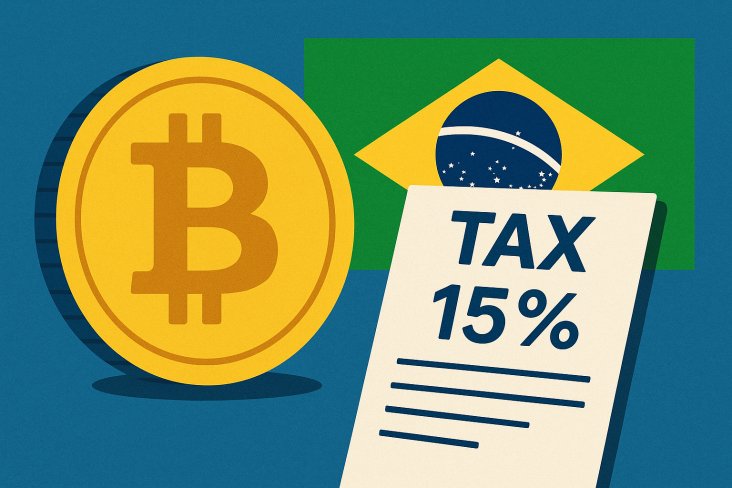In a decisive regulatory shift, Brazil has implemented a flat 15% tax on cryptocurrency capital gains, ending the previous exemption that benefited smaller investors. This move, aimed at streamlining tax policy and increasing government revenue, marks a turning point in how digital assets are treated in one of Latin America’s largest economies.
What Has Changed?
Previously, Brazilian crypto investors who earned less than 35,000 BRL (approximately $6,500) per month from digital asset transactions were exempt from capital gains taxes. The updated rule eliminates this threshold, meaning any profit from crypto trading—no matter how small—will now be subject to a 15% capital gains tax.
This applies not only to transactions executed through exchanges but also to peer-to-peer (P2P) trades and DeFi protocols. As a result, both retail and institutional investors must now report gains and pay taxes, regardless of volume or platform.
Why This Matters
The new policy represents Brazil’s efforts to normalize and regulate its rapidly growing crypto sector, which has seen widespread adoption among its citizens. The government is likely betting on this unified taxation scheme to increase fiscal revenue, improve compliance, and curb under-the-radar crypto transactions.
For smaller investors, however, the removal of the exemption could translate into increased compliance burdens and potentially diminished returns, especially in volatile or short-term trading scenarios.
Implications for the Crypto Ecosystem
Compliance Pressure: All investors, including those earning marginal profits, must now maintain precise accounting of gains and losses.
Market Behavior: Retail traders may reconsider trading frequency or shift toward longer-term holding strategies.
Revenue Boost: With all profits now taxable, the Brazilian government stands to collect significantly more in tax revenue from crypto activities.
Looking Ahead
Brazil’s move reflects a broader global trend toward mainstreaming and regulating digital assets. As more countries adopt formal frameworks for crypto taxation, investors will need to adapt to ensure compliance and optimize their strategies accordingly. For Brazil, the success of this policy may depend on how effectively it is enforced—and whether it manages to balance revenue goals with investor participation.





